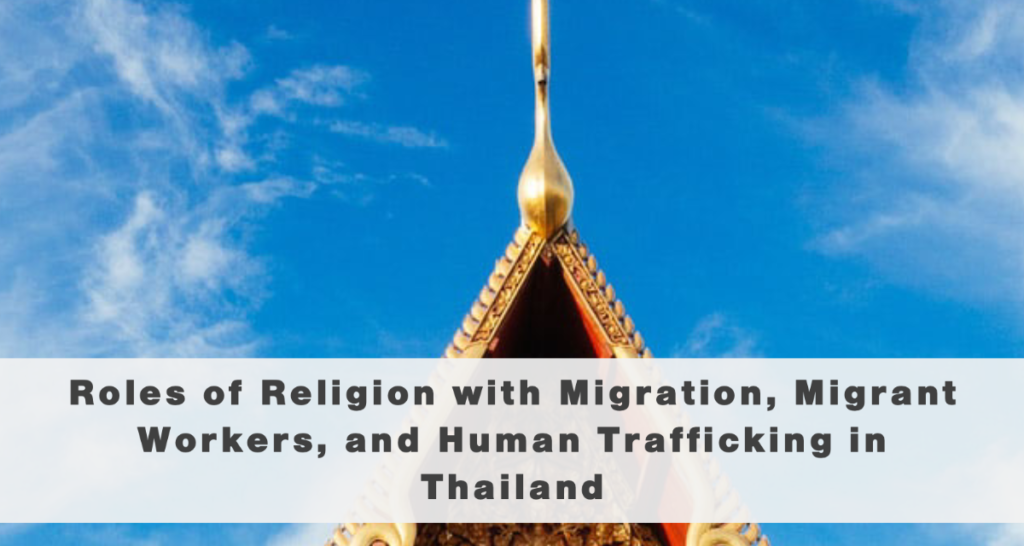Roles of Religion with Migration, Migrant Workers, and Human Trafficking in Thailand
Statement of the Consultation of the Religious Leaders
We, a group of fifty (50) religious leaders and workers from Buddhism, Christianity (Catholic and Protestant churches), Muslim, Hindu, and Sikh faiths took part in an inter-religious consultation on “The Role of Religions, towards Migration, Migrant Workers and Human Trafficking.” The program was organized by the Ban Sabaay Foundation in conjunction with an inter-religious network in Chiang Mai and ACT Foundation (Thailand) on Friday, February 28, 2020, at the conference hall, in the 75th-anniversary building of the Church of Christ in Thailand (CCT) in Chiang Mai, Thailand.
We, an inter-religious network, confirmed that every human being has equal honor, value, dignity, and rights from birth which are above ethnicity, nationality, gender, skin color, language, religion, and place of origin.
We, an inter-religious network, confirmed that migration and movement of migrant workers is a fundamental right according to the international principles of the United Nations which guaranteed that all humanity has the right to freedom, equal existence, valuable life, and peaceful living according to the status of each person.
Migrants and migrant workers from Myanmar, Laos, and Cambodia have been forced to leave their home villages and countries; escape from poverty, war, natural disasters, ethnic, and religious conflict searching for better opportunities and quality of life in Thailand. However, due to the legal loopholes, many migrant workers are being treated unfairly and are victims of human trafficking for labor and sex trade.
As an inter-religious network, we recognized that every religious community plays an important role in the upholding of human dignity; providing the first refuge for people who are in need; systematical and efficient integration of cooperation in solving problems of migrants, migrant workers, and victims of human trafficking.
Based on religious doctrine and universal human rights principles, an inter-religious network, therefore, offers the following practical guidelines for religious organizations:
- Provide basic assistance and services to migrants, migrant workers, and victims of human trafficking based on honor and basic human rights principles.
- Strengthen knowledge, understanding, awareness, and motivation of religious and community members about the impact of migration and migrant workers.
- Coordinate and transfer migrants, migrant workers and victims of human trafficking appropriately to receive short and long-term assistance from related governmental organizations, private, and civil society
- Provide knowledge, rights understanding, and responsibilities, including supporting migrants, migrant workers to understand and participate in solving various problems effectively.
- Participate and campaign in resolving and improving laws, rules, and regulations related to the solution of migration, migrant workers, and victims of human trafficking.
- Support and facilitate the creation of a network of cooperation at all levels that lead to effective and sustainable system solutions of the migration, migrant workers and victims of human trafficking.
Issued on 28 February 2020

